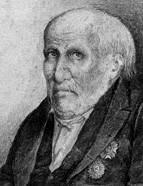

In this memoir, Lisboa cites authors such as Smith, Burke, and Montesquieu to legitimise the central role of the nobility. He claims not to seek to stifle merit but considers reverence for tradition a natural sentiment. At the same time, the British Empire is consistently portrayed as embodying a higher form of civilisation, whether through its respect for the defeated, its defence of free trade, or for having " [...] under its protection peoples who, as Montesquieu says, live in immemorial despotism” (p. 45). In his account, political upheavals are always caused by the rise of usurpers, illegitimate claimants, sometimes of obscure origin, in a direct allusion to Napoleon. The French emperor is described as "[...] an irreconcilable enemy of trading nations, clearly aspiring to universal monarchy” (p. 61). The flight of the royal family is justified by the loss of balance among European monarchies, which, before the revolution, formed a kind of republic. In this context, Brazil is depicted as the rock of resistance against the French, recalling the colonial episode of their expulsion from Rio de Janeiro in the 16th century.
In his analysis of Lisboa’s memoirs, Bruno Diniz identifies what he calls a "language of restoration" of the kingdom and the values of an aristocratic monarchy as the organising force of these narratives (Diniz, 2010, p. 43ss) . This restoration, Diniz argues, was underway through the liberalising policies and “liberation of commerce” adopted by the monarch, who had brought an end to the dreaded “colonial system.” This theme is a hallmark of what can be termed joanino historiography produced in Brazil, whose notable figures, alongside Silva Lisboa, include Luís Gonçalves dos Santos, Ayres de Casal, and Monsenhor Pizarro. The historical discourse of this period mobilised narratives of progress and civilisation to make sense of the royal court’s relocation to the former colony and to project a future of unity between the European and American parts of the monarchy. The restoration of the kingdom depended on the end of the "colonial system" and the transition from a medieval, warlike world to one defined by commerce, civility, sociability, civilisation, and letters.
This work is financed by national funds through FCT - Foundation for Science and Technology, I.P, in the scope of the projects UIDB/04311/2020 and UIDP/04311/2020.
